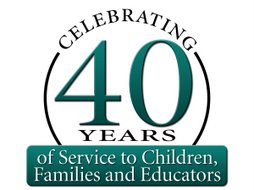21st Century Education: Technology is making it happen
Don Knezek, Mary Ann Wolf, and Ken Key
Some of the take away message included reinforcing some ideas that have emerged out of the edtech literature in the last six months:
- It’s not enough to know the content, we need to focus on the skills.
- We are trying to bring the focus onto knowledge and skills, and this really represents what the 21st Framework is about.
- A large part of the technology community continues to talk about the technology. The new NETS standards are a tool to better articulate the end game: Technology has a role to play with regard to every aspect of the model presented.
Are we graduating students who are capable of 21st Century jobs?
Anecdotal descriptions were offered of High School grads who fail to take initiative, described by the presenters as not being able to think, who can’t manage entry level positions. The panel called out for self-directed people.
An example was promoted from within the audience, of initiating self-directed
thinking:
- In the context of a remedial writing class, children set the
performance goals for themselves, selecting from within a rubric, reworking
their ideas and submission until it met the targeted acheivement. This aligns
with the goal of Bernhardt, for students to collect and monitor their own
performance, and the overriding goals of social cognitive theory, for children
and young people to grow into life-long, self-regulated learners.
When we were given the charge to solve these challenges with examples from our environments I turned to introduce myself to the 2 people nearest to me.
I met Pamela Randall of Monroe College and Bob Graver of DeVry University, and we talked about what we might like to add to the new NETS model, as well as examples of application we have observed and where they integrate into the new NETS model. Our ideas were not nearly close enough to the classroom.
There were some very good examples from the audience.
Here is the one I found most interesting....
An Application from the audience:
Technology Convocation: What is that – a day of conversation with 130 people in
a room – what do we know about changes in kids, what are we doing for the
graduating class of 2020, and what are we doing for the leadership of 2020 – the
first year teachers.
The session wound down with a question, and a reiteration from the panel regarding the importance of the work that resulted in the new ISTE NETS standards.
What are we doing to teach teacher educators to integrate technology tools into their instruction? Ken Keys reinforced the expectation that tech-champions need to work harder in their learning environments to reinforce the drive for technology.
The panel concluded by stating that the ISTE-NETS process has broadened and brought into alignment the International goals and the national expectations.
... all of which I might have learned if I read Doug's blog about the release of the new NETS2 earlier in the week.
Best,
BS
this new century
is getting old...

No comments:
Post a Comment